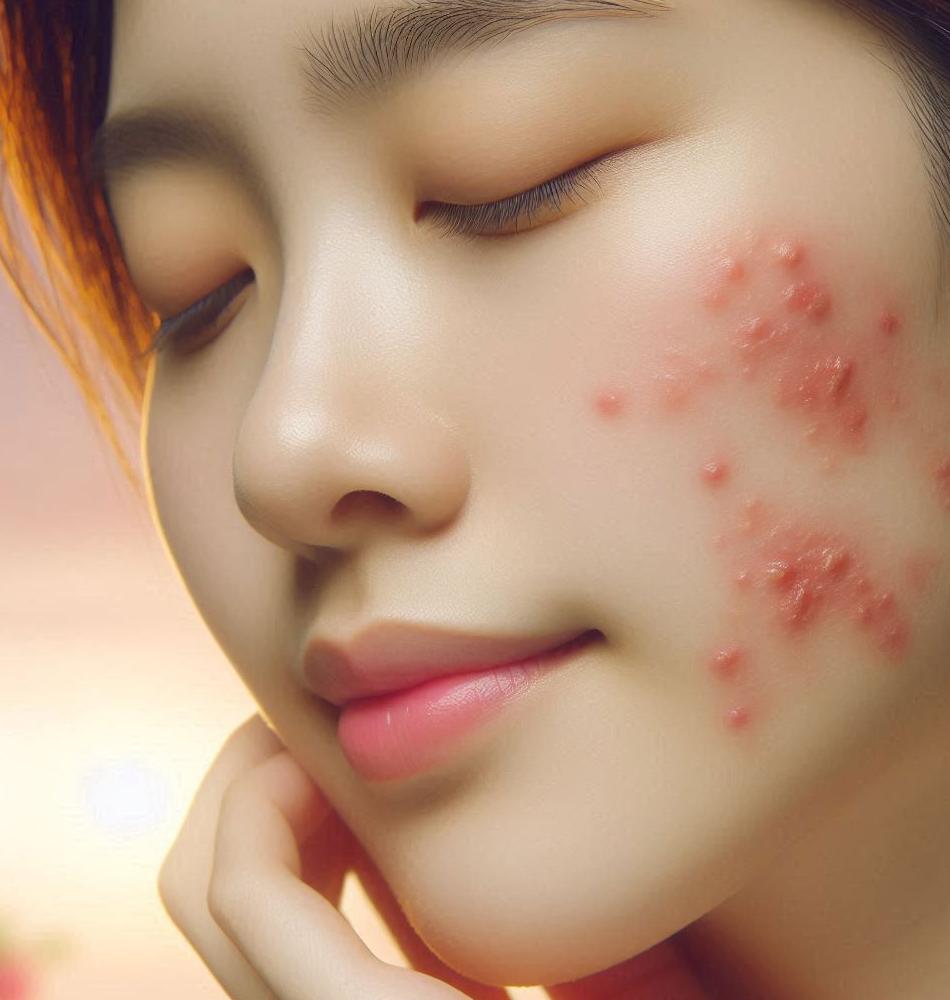Living with eczema can sometimes feel like an uphill battle, especially when it flares up on your face. The visible nature of facial eczema can impact not only your skin but also your confidence and emotional wellbeing. However, with the right approach, you can manage your symptoms and find relief. This article will guide you through various treatments, tips, and tricks to deal with eczema on your face effectively.
Understanding Eczema: What You Need to Know 📚
Eczema is a chronic condition that causes red, itchy, and inflamed skin. On the face, it can be especially distressing as it affects not just the health of your skin, but also how you feel about your appearance. Here are some key points to understand:
What Causes Eczema? 🔍
The exact cause of eczema is still not completely understood, but several factors can contribute to its development:
- Genetic predisposition- Environmental triggers- Stress and anxiety - Skin irritants - Allergies to foods or substancesSymptoms of Facial Eczema 🔔
Recognizing the symptoms early can help manage eczema better:
- Red or brownish-gray patches on the skin- Dry, sensitive skin- Intense itching, which may worsen at night- Scaly areas that may ooze when scratched- Thickened, cracked skinEffective Treatments for Facial Eczema 💊
When it comes to treating eczema on the face, a comprehensive approach is often necessary. Below are some effective treatments you can consider:
1. Moisturizers: Keeping the Skin Hydrated 💧
One of the simplest yet most effective treatments for eczema is using a good moisturizer. Here’s what to keep in mind:
- Choose fragrance-free and hypoallergenic options.- Apply moisturizer immediately after washing your face to lock in moisture.- Consider using thicker creams or ointments rather than lotions for better hydration.2. Corticosteroid Creams 💪
Over-the-counter corticosteroid creams are commonly used for treating inflammation. Follow these tips:
- Use a low-potency cream, ideally under a doctor’s guidance.- Apply a thin layer to the affected area.- Monitor your usage as prolonged use may lead to skin thinning.3. Calcineurin Inhibitors 🔬
Topical calcineurin inhibitors like tacrolimus can be prescribed for inflammation control. These are non-steroid options that:
- Help reduce redness and itching.- Can be used on sensitive facial skin without thinning the skin.4. Phototherapy 🌞
In cases where topical treatments are not effective, your dermatologist may recommend phototherapy. Here’s what to expect:
- Exposure to controlled amounts of natural sunlight or artificial UV light.- Regular sessions that can help reduce symptoms significantly.5. Oral Medications 💊
Sometimes, oral medications are necessary to control severe eczema. Options include:
- Antihistamines to reduce itching.- Systematic corticosteroids for short periods.- Immunosuppressive drugs for more serious cases.Home Remedies for Eczema Relief 🌼
In addition to medical treatments, several home remedies can help soothe eczema symptoms:
1. Oatmeal Baths 🛁
Soaking in an oatmeal bath can help relieve itching. Simply:
- Add colloidal oatmeal to warm bathwater.- Soak for about 15-20 minutes and pat your skin dry.2. Coconut Oil 🌴
Coconut oil is known for its moisturizing and antimicrobial properties. You can:
- Apply virgin coconut oil directly to the affected area.- Use it as a moisturizer after cleansing your face.3. Aloe Vera Gel 🌱
Aloe vera has anti-inflammatory properties. To use it:
- Extract fresh gel from an aloe plant.- Apply it on your face to soothe irritation and redness.Important Lifestyle Changes ✨
Incorporating a few lifestyle changes can greatly impact your eczema management:
1. Identify Triggers 🚫
Keep a diary to identify what triggers your eczema. Potential triggers might include dietary choices, stress, or environmental factors. Once you identify your triggers, you can work to avoid them:
- Keep a food diary to track any allergic reactions.- Note any skincare products that cause irritation.2. Manage Stress 😌
Stress is known to worsen eczema symptoms. Implement stress-reduction strategies such as:
- Meditation and mindfulness practices.- Engaging in physical activities.- Building a strong support system with friends and family.3. Healthy Diet 🥗
An anti-inflammatory diet can benefit your skin. Consider integrating the following foods:
- Fruits and vegetables rich in antioxidants.- Omega-3 fatty acids from fish or flaxseeds.- Whole grains instead of processed foods.Frequently Asked Questions ❓
- Can eczema on the face be cured?
- Are there any natural remedies that work for facial eczema?
- What should I avoid if I have eczema on my face?
- How often should I apply moisturizer for eczema?
- When should I see a dermatologist for eczema?
Conclusion 🌈
Dealing with facial eczema can be daunting, but knowledge is power. With the right treatments and lifestyle adjustments, you can alleviate your symptoms and improve the condition of your skin. Remember to stay consistent with your skincare routine, identify your triggers, and consult with a healthcare professional when needed. With dedication and the right approach, you can reclaim your confidence and enjoy healthy, radiant skin.

